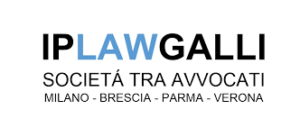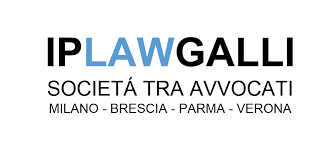
In order to start building the future of our economies now, which awaits us after the end of the Covid-19 emergency, we must take four main factors into account.
First: globalization cannot be questioned, given that it is impossible to give up to one of the main outcome of it, a tool such as the Web, which, even just by itself, is actually able, by the mean of e-commerce and shared communications, to cross any boundary. As well, it is also unthinkable to come back to close economies which, even wanting, we would not be able to establish. Therefore, the new economy will be needed to be established taking into account the globalization phenomenon, considering that today’s emergency does not arise from globalization in itself, but, rather, from its incompleteness as long as it did not allow information to promptly reach Western Countries to prevent Covid-19 diffusion.
Second, as a corollary of the first: it is necessary to govern globalization by respecting individual freedom, both economic and politic, since only freedom, rather than a dystopic world government, provides the antibodies needed to keep humans being really human, instead of becoming mere changeable gears.
Third: all the changes in the way of working or the new professions emerging from such a crisis cannot be forgotten tomorrow, also because they introduce new positive aspects for both the lifestyle and the environment, which it would not be so easy to give up.
Forth, even more crucial on the operational ground: since years, the extension of average lifespan and the decisive value of the time factor in our lives, often increasingly chaotic and neurotic, have brought to the forefront the need for quality of life, which means first and foremost health, but also environmental protection, well-being, safety (including safety of communications), comfort, and the ability to reconcile work with personal and family needs.
In the light of this new perspective, the proper management of intellectual property rights will be even more important.
Here too, however, it is above all important to have a Vision of the Future and the ability to set up correct growth strategies, consistent with the new needs that this emergency has brought about. In this perspective, technology transfer agreements (also for States) and licensing agreements (exclusive and non-exclusive) on their intellectual property rights will be even more fundamental to make the best use of these rights as a competitive factor on the global market, all the more given the difficulties in trade, that will lead to the decentralisation of production to be marketed in more distant markets. It should also be considered that some of these rights are subject to forfeiture or revocation in case of non-use (trademarks and, on certain assumptions, patents), so that use is a necessary condition for the preservation of the right. Hence it is not possible to “disinterest” in the licensee’s activity, which must instead be constantly monitored. This also includes the circulation and use of confidential information that requires to pay special attention to both security of computer communications and confidentiality commitments, that should last as long as the information covered by them has not become generally known or easily accessible for reasons not attributable to the obligated party, so tha the correct contractualisation thereof is now even more crucial than ever.
A second issue concerns trademarks. In most countries, the deceptiveness of the trademark resulting from the way or context in which it is used implies the forfeiture or revocation of the trademark and likewise the assignment or license thereof resulting in deception to the public may even be declared null and void. The deception relevant for the application of the above mentioned sanctions may also concern all the components of the message communicated by the trademark and not only the strictly material ones: there are, in fact, also “intangible” characteristics (first of all authorship and stylistic consistency, but often also geographical origin) that assume a decisive importance for consumers. Moreover, the rules of the brand are coordinated with those relating to other aspects of corporate communication, such as advertising and producer responsibility for defective products. In addition, apart from sanctions, the risk is that misuse of the brand by licensees or local distributors will negatively affect the image and thus the value of the brand, including globally. Therefore, the correct contractualisation of international business relations involving IPRs is essential in this case as well.
No less important, moreover, especially in times like this, when national resentments are the order of the day, is to make sure that the message that the brand should symbolize is compatible with the culture of the country where you want to sell your products, to avoid dangerous rejection reactions. In other words, today more than ever one must have the courage to be “glocal”, that is, to build a global business, but able to adapt to local peculiarities.
A third issue concerns with the IP rights ownership, circulation and use inside the holdings, especially the multinational ones. It is not recommended to base the management of such rights on the mere principle of freedom of usage of IP rights within the same holding, as long as this setting does not take in consideration – firstly, on the ground of the financial and accounting autonomy of the individual companies part of the holding – mutual giving and taking relationships, which shall be regulated and valorized by mean of effective framework agreements. Under this perspective, it becomes emblematic the management of the technologic invention, whose creation (or acquisition by third parties) is usually expensive and, in the first case, may also lead to the obligations towards employees-inventors. In fact, such obligations fall always on the employer, independently from the fact that it/he/she is the patent holder or not. Therefore, the free entitlement or assignment of the related exclusive rights to other holding’s companies would not be justified, if not exchanged for cash flows which could constitute the reason of such asset attributions.
A third point concerns the ownership, circulation and use of intellectual property rights within groups of companies, especially multinational ones. In fact, it is inadvisable to base the management of these rights within a Group of companies on the mere principle of the free use of IP rights within the same Group, a solution which does not take into account – first of all in terms of the financial and accounting autonomy of the individual companies – the mutual relationships of giving and taking, which therefore deserve to be properly regulated and valued from a contractual point of view, in particular by mean of effective framework agreements Emblematic, from this point of view, is the management of technological innovation, whose creation (or acquisition from third parties) is usually expensive and, and in the first case may also involve obligations towards employees-inventors, linked to the value of the innovation: in many countries (including Italy) these obligations, in fact, fall in any case on the employer, regardless of whether or not the latter is the owner of the patent. Therefore, the free entitlement or assignment of the related exclusive rights to the holding or other Group companies would not be justified, if not exchanged for cash flows which could constitute the consideration for these asset attributions
Last but not least, matters regarding jurisdiction must be carefully considered in the process of drafting and periodical revising of contracts, in particular the license and assignment ones, especially if they are long-term contracts. Clauses will be needed to be sufficiently adaptive, so to always granting the possibility of an effective enforcement, even in presence of situations of crisis and radical changes in the legal framework, like the ones deriving from Brexit.
Therefore even if the way to get out from the crisis we are in is long and difficult, taking appropriate action promptly in order to successfully meet the new market challenges as well as the latest needs, by looking for a strategic future-oriented plan of IPRs management, is a competition plus that any company all over the world cannot miss.
Cesare Galli


